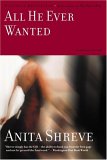Summary | Excerpt | Reading Guide | Reviews | Readalikes | Genres & Themes | Author Bio

We traveled the length of Wheelock Street until we came to an antique house of beeswax-colored clapboards. It was an unadorned residence, like so many of the houses of that street. These I much preferred to the frippery that passed for architecture on adjacent Gill Street: large, rambling structures with gables and porches and seemingly no symmetry, although these newer houses did have better accommodations for indoor plumbing, for which one might have been willing to trade aesthetics. The Bliss house had seven bedrooms, not counting attic rooms for servants, and two parlors, a dining room, and a study. It also had, as of a year previous, steam heat, which hissed and bubbled up in silver radiators. I sometimes used to think the appliances might explode and scald us to death as we played backgammon or took tea or dined of an evening in those overly furnished and fussily papered rooms.
"But, madam, I know this house," I said. "It is the home of William Bliss."
"My uncle."
I then realized that the woman sitting across from me was not elderly at all, but rather was the middle-aged wife of the Physics Professor, a woman I had met on at least three occasions at the college.
"Mrs. Bliss," I said, addressing her, "forgive me. I did not realize . . ."
But she, unable to speak, waved my apology away with a flutter of her hand.
I walked the two women to the front door, which was almost immediately opened by William Bliss himself.
"Van Tassel, what is this?" he asked.
"A fire at the hotel," I explained quickly. "We are all lucky to have escaped with our lives."
"Dear God, he said, embracing his wife and leading her farther into the house. "We wondered what all the bells and horns were for."
A housemaid took the child from the woman with the golden brown eyes, who then turned in my direction, simultaneously slipping the rug from her shoulders and giving it to me to wear.
"Please take this for your journey home," she said. "My aunt and I are very much in your debt."
"Nicholas Van Tassel," I said.
"Etna Bliss."
Once again, she put her warm hand in mine. "How cold you are!" she said, looking down and withdrawing her hand almost immediately. "Will you come in?"
Though I dearly wanted to enter that house, with its promise of warmth and its possibility of love (the mind leaps forward with hope in an instant, does it not?), one knew that such was not appropriate under the circumstances.
"Thank you very much, but no," I said. "You must go inside now."
"Thank you, Mr. Van Tassel," she said. And I think already her mind was on her aunt and the child and the hot bath that would be waiting, for with that, she closed the door.
Perhaps a brief word here about my own circumstances at that time, which was December of 1899, for I believe it is important to pass on to subsequent generations the facts of one’s heritage, information that is often neglected in the need to attend to the day-to-day and, as a consequence, drifts off into the ether of time past. My father, Thomas Van Tassel, fought in the War Between the States with the Sixty-fourth Regiment of New York and sacrificed a leg to that conflict at Antietam, a calamity that in no way hindered his manhood, as I was but one of eleven children he subsequently sired off a succession of three wives. My mother, his first wife, perished in childbirth — my own — so that I never knew her, but only the other two. My father, clearly a productive man, was enterprising as well, and built three sizable businesses in his lifetime: a print shop, to which I was apprenticed at a young age; a carriage shop; and then, as horses quite thoroughly gave way to motors, an automobile showroom. My memories of my father exist primarily in the print shop, for I hardly knew him otherwise. I often sought refuge in those rooms of paper and ink and type from my overly populated house in Tarrytown, New York, with its second and third wives: one cold, the other melancholy, and in neither case well disposed to me, who had issued from the first wife, the only woman my father had ever loved, a fact he did not shrink from announcing at frequent intervals, despite the impolitic nature of the sentiment and the subsequent frigidity and sadness that resulted. I was not altogether bereft of feminine warmth during my childhood, however, for I was close to one sibling, my sister Meritable, the very same sister whose funeral I am even now journeying toward.
From All He Ever Wanted by Anita Shreve. Copyright 2003. All rights reserved. No part of this book may be reproduced in any form without written permission from the publisher, Little, Brown & Company.




I find that a great part of the information I have was acquired by looking something up and finding something else ...
Click Here to find out who said this, as well as discovering other famous literary quotes!
Your guide toexceptional books
BookBrowse seeks out and recommends the best in contemporary fiction and nonfiction—books that not only engage and entertain but also deepen our understanding of ourselves and the world around us.